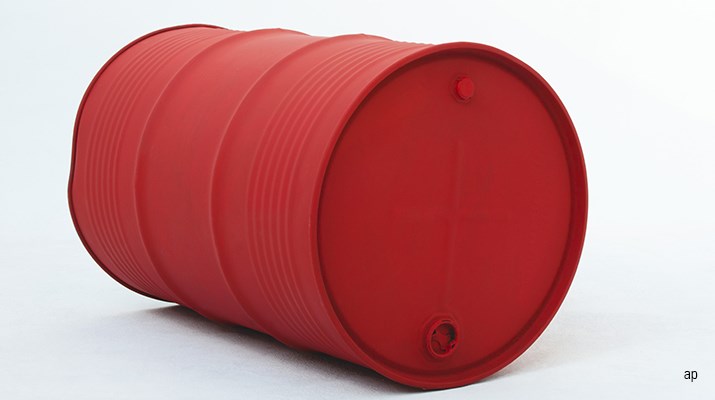
The oil price has plunged to levels not seen this century amid fears that the fallout from the coronavirus crisis will crush global demand.
The price of the benchmark WTI oil fell 20% to $15 on Monday, while Brent crude fell 4% to below $27 a barrel, triggered by fears that the US is close to reaching capacity for storing oil. Such prices have not been seen since 1999.
Shares in UK oil giants eased off on the news, with Shell down around 1% and BP 2%. Shares in both are down significantly year to date, with the sector bearing the double whammy of an oil price war between Saudi Arabia and Russia and the coronavirus lockdown.
The price of the black stuff took a major hit on March 9 when the crude dropped 30%, sparking a sell-off in oil shares. The companies’ shares have participated in the wider equity market recovery, helped by a deal made by Opec+ countries (including Russia) to cut production from May onwards to support the oil price.
March share price falls were substantial: Shell shares collapsed from £22.58 in January to 916p on March 18, a fall of 60%, but are now around £13.50. Likewise BP’s shares fell from 480p at the start of the year to 233p on March 18, a fall of 51%, but are now trading around 295p.
Joshua Mahony, senior market analyst at IG, says the Opec cuts are likely to be insufficient to support oil prices and “the huge oversupply issue looks unlikely to go away anytime soon”. But DBRS Morningstar managing director, Dave Sekera, argues that if these production cuts are maintained for the next two years, and the world economy starts to crank back up after lockdown, oil prices will start rising again.
Net Zero Pledge
The market moves come at a time when the industry is making efforts to become more palatable to climate-conscious investors. This month, Shell pledged to become a “net zero” carbon emissions business by 2050, following BP’s commitment to the same target in February. "Society's expectations have shifted quickly in the debate around climate change,” said Shell chief executive Ben van Beurden.
ESG investors are focusing increasingly on “scope 3” emissions, because they measure the total environmental impact of a company’s products. In oil companies’ case, that means emissions from cars, industry and the airline industry. Shell has pledged to cut these emissions 30% by 2035 and 65% by 2050. The UK government, meanwhile, has banned the sale of petrol and diesel cars by 2035, brought forward from 2040, which should help oil companies reduce their scope 3 emissions.
As BP and Shell are significant dividend payers, there has been much speculation about whether the companies would follow the crowd and reduce income payments to shareholders amid the Covid-19 crisis. So far they have held firm, although Shell is suspending its share buyback programme. Some UK equity income fund managers think the FTSE 100 oil companies can continue to pay dividends this year; Clive Beagles , manager of the Silver-rated JOHCM Equity Income fund thinks Shell, which has not cut dividends since world war two, has enough cash to ride out this crisis.
Morningstar oil analyst Allen Good argues that the oil majors will “muddle through the next couple of years” to make sure their dividends remain intact.




























